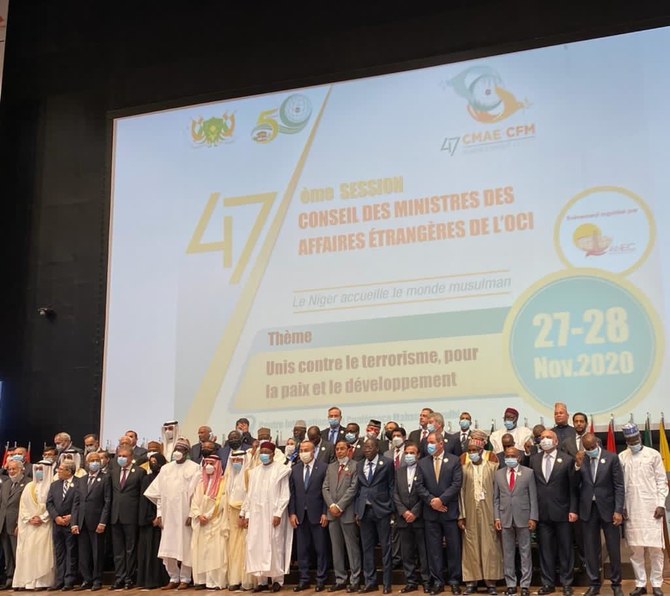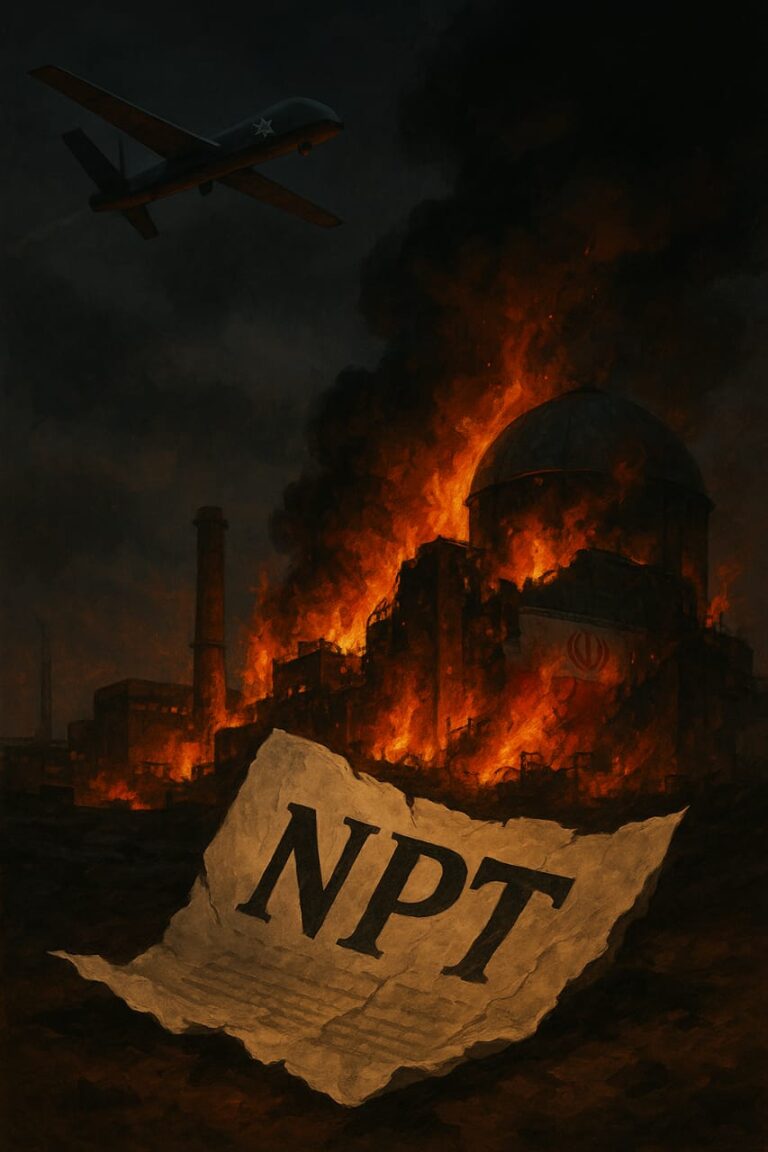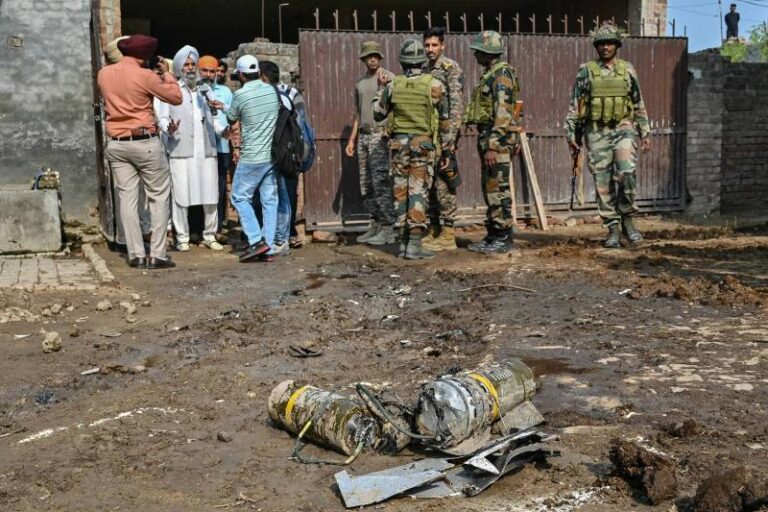
Source: Arabs News
Ahmed Quraishi
The most important challenge for Indian diplomacy on the festering conflict in Kashmir is to ensure that it is not raised at any forum outside India. Any discussion on Kashmir outside the parameters of Indian diplomacy highlights the unflattering fact that New Delhi is unable to resolve a dispute for seven decades, which questions India’s credentials as a responsible regional actor.
So, it was not unusual to watch Indian diplomats scramble for their latest firefighting mission after the Council of Foreign Ministers (CFM) of the Organization of the Islamic Conference (OIC) formally asked India “to rescind” all recent actions in Kashmir. The Council of Ministers of the OIC established a firm and detailed position for the world’s second largest multilateral organization, at the end the 47th CFM session, held in Niger’s capital, Niamey, on 27 and 28 November 2020.
This was not a routine, sweeping statement on Kashmir, but a calibrated position that precisely spelled out what India needs to do to walk back recent actions in Kashmir that constitute violations of international law. The CFM laundry list creates a basis for future diplomacy at the United Nations and elsewhere. Pakistan’s Ministry of Foreign Affairs did an excellent job of summarizing CFM-OIC’s detailed position in a statement released on Nov. 28. It included references to the “Jammu & Kashmir Reorganization Order 2020”, the “Jammu & Kashmir Grant of Domicile Certificate Rules 2020”, and the “Jammu and Kashmir Language Bill 2020.”
By listing these Indian laws by name, foreign ministers of 47 states struck at the heart of Prime Minister Narendra Modi’s legal package for Kashmir. That package is close to his heart. Modi hopes it would permanently and unilaterally end the conflict on New Delhi’s terms, without taking Kashmiris and Pakistan on board.
The resolution also made references to “state-sponsored terrorism” in Kashmir, extrajudicial killings, harassment of Kashmiri women by Indian army, the work of the OIC Special Representative on Jammu and Kashmir, and the OIC Fact-finding Mission in Azad [Free] Kashmir and the occupied territories.
The CFM formally endorsed two reports released by the UN Human Rights Council, in 2018 and 2019. Those reports marked the end of international inaction on Kashmir and called for the world to consider forming an international investigative mission into human rights violations in Kashmir. This UN position is significant because it adds to India’s diplomatic woes. New Delhi is now fighting two UN demands: for a peaceful settlement based on a referendum, and an international probe into rights abuses going back to the start of the conflict. The HRC reports constitute a legal dossier listing actual cases formalized by Kashmiri and Indian judicial systems.
The work done by UNHRC, CFM-OIC, the OIC Special Representative on Kashmir, the OIC Fact-Finding Mission, and the OIC Contact Group on Kashmir, all of this lays the groundwork for political, diplomatic, and legal cases on the conflict, and expands the scope for a future international intervention. Such an intervention seemed an impossibility just five years ago. Some of the baby steps include the UN Security Council holding three meetings on Kashmir in one year since India escalated tensions by ending the region’s autonomy on 5 August 2019. Those meetings did not lead to any action. “Still, just dusting off the diplomatic cobwebs was by international standards a big deal,” wrote Richard Roth, CNN’s point man on the workings of the powerful Council.
What worries India more is that the CFM is following up on its agenda items. One hint is the Rohingya case at the International Court of Justice (ICJ), initiated and pushed by the OIC. The OIC not only deftly navigated diplomatic minefields linked to states that back Myanmar, like China, with which the OIC wants robust ties, but the OIC is now fundraising for the case. The 47th CFM discussed this in detail.
India’s OIC Strategy
The Indian media tried to compensate for the diplomatic setback at CFM-OIC by promoting the narrative that New Delhi was improving relations with OIC member states even as the organization backed Islamabad. For example, the Indian Express published a report on Dec. 7, 2020, leading the report with a picture of the late Indian foreign minister Sushma Swaraj attending the 46th CFM at Abu Dhabi in March 2019. Islamabad boycotted that session because of her presence.
But Indian foreign minister’s presence was not a total success. It was linked more to oil politics than any major inroads into OIC, with India’s oil imports from Iran impeded by US sanctions and other oil producers hoping to fill in the void. More importantly, the Abu Dhabi session, presided over by the UAE, was the first time the OIC officially referred to Indian actions in Kashmir as “Indian terrorism” and condemned the use of pellet guns against civilians as “mass blinding,” in reference to deliberate eye injuries.
The 46th Abu Dhabi CFM also singled out Pakistan for praise in the aftermath of the Pulwama crisis in Kashmir, and credited Prime Minister Imran Khan for restoring regional peace after Pakistan shot down two Indian fighter jets and captured an Indian pilot. The CFM-OIC Abu Dhabi Declaration, in clause 27, said: “We welcome the positive initiative undertaken by the Prime Minister of Pakistan H.E. Imran Khan to hand over the Indian pilot as a gesture of goodwill to de-escalate tensions in the region.” That Pakistani gesture inflated Islamabad diplomatically while diminishing India’s diplomatic stature.
But India is relying on exploiting weak spots in Pakistani diplomacy to counter the growing global interest in Kashmir. Critics often refer to the propensity in Pakistani foreign policy discourse for self-inflicted wounds. This would include episodes of exaggerated and unnecessary criticism of OIC and the United Nations that distract from positive actions, like using these platforms as tools to further international diplomacy instead of using them as punching bags.
The latest example is what happened on Nov. 26, two days before the CFM-OIC kicked off in Niamey. A major Pakistani newspaper announced that the OIC had dropped Kashmir from its CFM agenda, and repeated the claim in a follow-up story on Nov. 29. This happened despite Pakistan’s Ministry of Foreign Affairs confirming, on Nov. 27, that Kashmir was a “permanent item” on OIC agenda that cannot be skipped.
The Indian media pounced on the confusion emanating from Pakistan. The negative impact was greater among pro-Pakistan elements inside Kashmir, leading some Kashmiris to question Pakistani intentions and diplomatic competence if Islamabad can’t secure its OIC turf.
Foreign Minister Shah Mehmood Qureshi and his team at MFA effectively countered this impression by immediately meeting with the envoys of OIC states in Islamabad, by tweeting about it with pictures, and with the MFA releasing a statement thanking the OIC foreign ministers for support.
Ahmed Quraishi is a journalist who writes on national security and human rights.




